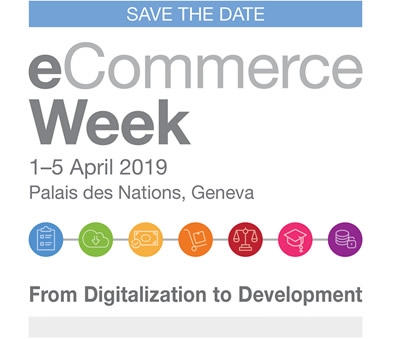Globalisation – Perception vs. reality: why opposition to international trade and open borders is misplaced, counter-productive, and harmful to our future security and prosperity
3 Apr 2019 13:15h - 14:45h
Event report
[Read more session reports and live updates from the UNCTAD E-commerce Week]
The session, organised by the World Information Technology and Services Alliance (WITSA), was moderated by Mr James Poisant (Secretary General, The World Information Technology & Services Alliance, WITSA) who stressed the need to reach a comprehensive understanding of the benefits and challenges of globalisation. Indeed, the session focused on those challenges and perceptions of globalisation and digital trade.
Ms Christine Bliss (President, US Coalition of Services Industries) argued that globalisation is deeply connected to digital trade. Stressing the continuous misunderstanding of services in digital trade, she recalled that digital services are interconnected to all sectors across the economy and will represent a vital variable in the future of work and trade. The jobs of the future are coming from services, implying that the need for new skills has to be addressed both by the public and the private sector. Moreover, digital services are helping the development of countries, as shown by the African experience. Finally, she reiterated that the debate on globalisation has been focused on digital trade and concerns about sovereignty and the right to regulate; nonetheless, while they are all valid questions, the starting point is often misunderstood: there is indeed currently a high degree of regulation.
Mr Daniel Crosby (Partner, King & Spalding) tried to address a set of questions proposed by the moderator. He highlighted the current inefficiency of the rule-making function of the World Trade Organization (with some important exceptions), related to two main approaches: inaction, which could however be tackled even by the simple participation and listening to the activities of the WTO, and by the assumption that domestic solutions by themselves can solve the challenges posed by the digital economy. Indeed, he argued that prosperity is also dependent on e-commerce and international trade. Finally, he strongly rejected alternative solutions to multilateralism and trade liberalisation.
Mr Giles Derrington (Associate Director, Policy techUK) explained that the international perspective overcomes the national one when it comes to the analysis of digital trade. The growth of ecosystems is indeed featured by large and small companies working together in their own interested economy. On this point, the focus of the analysis should be broadened and not limited to startups as the main value creation of the economy.
Ms Lee Tuthill (Counsellor, World Trade Organization, WTO) argued that globalisation needs a global referee, which should be identified in the WTO, in its transparency and in the standards in place. Moreover, stressing the goals achieved in the 1990s in the telecommunication field, she recalled that the WTO should and could have an influential role in discussing digital issues
Mr Alexander Mora (Chairman, LATAM EVICERTIA) argued that digital technologies and the WTO directly trigger globalisation. If on the one hand, the evolution of digital technologies has to be conceptualised in the framework of the Fourth Industrial Revolution, on the other hand, the WTO processes can be blocked even by one single member. In this context, a broader approach that relies on plurilateral systems should be considered and looked at the Friends of E-commerce for Development as an example of plurilateralism in action.
Mr Patrice Chazerand (Director, DIGITALEUROPE) argued that there is a backlash or techlash against globalisation and the digital economy. However, the perception needs to be based on reality: over the last ten years, trade in services grew exponentially compared to trade in goods.
Mr Tilmann Kupfer (Vice-President, Trade & International Affairs, BT Group) argued that talking about globalisation requires discussions about digitalisation. Trade increases the demand for ICTs services at a global level. However, this cannot be done without appropriate regulations done in a transparent and non-discriminatory way. As a result, the WTO represents a key actor in addressing this area and in fighting protectionism. Furthermore, he argued that a more holistic view, including all the relevant stakeholders, should be put in place with resulting responsibilities both for governments and businesses.
By Stefania Grottola
Related topics
Related event

eCommerce Week 2019: From Digitalization to Development
1 Apr 2019 15:45h - 5 Apr 2019 15:45h
Geneva, Switzerland
